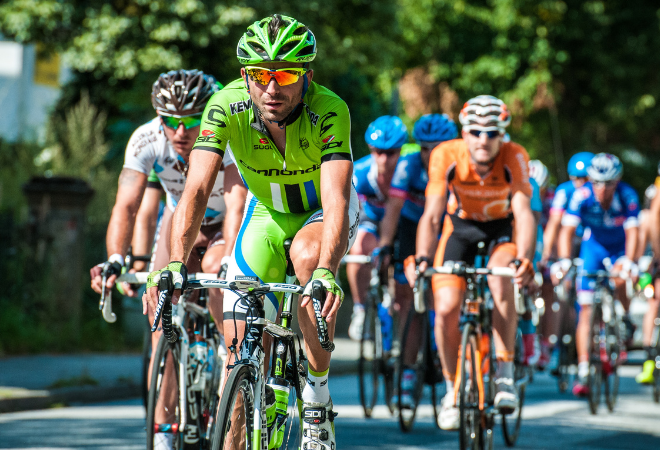
Potatoes and Exercise: Research shows when to eat to benefit performance
When it comes to optimal physical performance, athletes are continually searching for advantages. While manufactured sports products are consumed by many athletes, new research shows promising results for one whole food option — potatoes!
A series of recent studies funded by the Alliance for Potato Research and Education (APRE) shows that potatoes may be as effective as commercial sports products in fueling before, during and after exercise. The findings from these studies suggest athletes and active consumers should eat potatoes to perform at their best, further supporting potatoes in sports nutrition.
Before exercise
A new randomized, crossover study compared when 16 recreationally active men and women ate potato-based foods and exercised multiple times in a single day. The study found that glycogen recovery rates and performance during a 20-kilometer timed stationary bike trial were comparable to commercial sports supplements and did not differ between genders. This study suggests that eating potatoes before exercise may support an athlete’s performance and help them stay fueled. However, as the first study of its kind, larger and longer trials are needed to confirm the results.
During exercise
Another randomized, crossover study of 12 endurance-trained cyclists found that, compared to a commercially available concentrated carbohydrate gel, eating russet potato purée during a single prolonged cycling event is as effective as carbohydrate gels for supporting exercise performance. This study indicates that potatoes eaten during activity may maintain an athlete’s energy and enhance their performance, but further research is needed with larger sample sizes to demonstrate this effect in other populations.
After exercise
A single-blind randomized parallel-group study provided 24 healthy young women with either 25 grams of potato protein isolate, supplemented twice daily, as part of a high-protein diet at twice the recommended dietary allowance (RDA) or a control diet at the RDA for protein without potato protein isolate for two weeks. The results showed that in conjunction with high-repetition resistance exercise, potato protein isolate can augment rates of muscle protein synthesis (MPS) in healthy young women following training and at rest. This study suggests that potato-based meals may provide the carbohydrates athletes need to replenish their energy stores, however more extensive and more prolonged trials are needed to determine the clinical implications fully.
The findings from these studies suggest that potatoes can be useful to athletes and consumers of all types who are looking for more ways to fuel their performance and recovery. These findings position potatoes as a nutrient-dense, whole food option for active people and provide the potato industry with further nutritional benefits to promote. While these results indicate a positive benefit, findings are not conclusive and should not be generalized to different populations, including by sport or training level. Future research is needed.
— Jill Rittenberg is the senior global marketing manager for Potatoes USA, the marketing organization for 2,500 commercial potato growers in the U.S.







